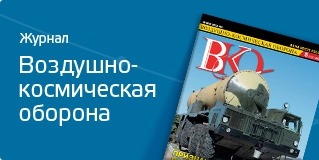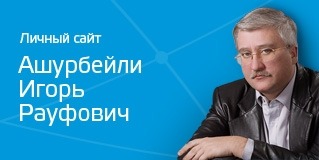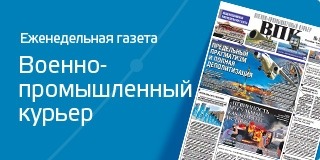Partners
NAB ASD concluded the general agreements on cooperation and collaboration with 13 leading organizations in the field of the military-industrial complex, including:
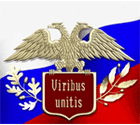
Chairman of the Presidium of the Public Council for Foreign and Defense Policies (CFDP): Sergei Karaganov.
CFDP is a nonprofit non-governmental organization set up on the 25th of February, 1992 in Moscow by a group of reputed and influential politicians, heads of business associations, prominent businessmen, public figures and statesmen, representatives of the power ministries, military-industrial complex, science and the mass media. ...
The independent status and high scientific and political authority allows the Council in the frame of its statutory goals to realize, both on the domestic and on the international level, preliminary elaboration and testing of the promising ideas aimed at protection of the national interests of Russia in the field of the foreign and defense policy, in other areas of the national strategy.
CFDP enlists the services of a wide range of qualified domestic and international experts supported by close ties with the leading research centers, government bodies and political parties and organizations of Russia.
The priority projects and programs are: "Strategy for Russia", "Russia and the World", "Military Reform", "Russia-NATO", "Russia and the EU", "Russian-American dialogue".
CFDP operates in close collaboration with a number of the parliamentary and government bodies, including the committees of the RF State Duma on foreign affairs, defense; with the Administration of the Russian Federation President, the RF Ministry of Foreign Affairs, the RF Ministry of Defense, the other power ministries and departments, the RF Ministry for Atomic Energy, academic institutes, especially the Institute of Europe and the Institute of Global Economy and International Relations of RAS. CFDP also develops the contacts with a number of foreign governmental and private organizations.
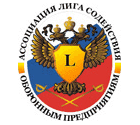
President of the association: Gutenev Vladimir Vladimirovich.
The stands of work of the association:
...
- Economics and finances of the defense industrial complex, the Armed Services Procurement, military technical cooperation, federal special-purpose programs, the interaction with the natural monopolies
- Supervision over the defense industrial complex organizations
- Regulatory support, defense industrial complex activities, connection with the state government bodies and non-governmental organizations, the mass media
- Development of the national industrial projects, technological re-equipment of the production, staff training and education
- Regional policy, monitoring of the industrial enterprises
The Association includes more than 50 companies and institutions.
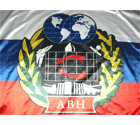
President of the Academy of Military Sciences (AMS): General of the Army Gareyev Makhmut Akhmetovich.
AMS consists of 28 academic departments, including 11 departments in Moscow and 17 regional departments - in the different constituent entities of the Russian Federation, in Belarus and Kazakhstan. ...
There is a scientific department on ASD problems in the Academy.
The research staff numbers 61 scientists, including doctors of science – 24, candidates of science – 37.
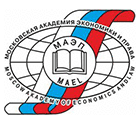
Rector of the Moscow Academy of Economics and Law (MAEL): Buyanov Vladimir Petrovich.
The Academy employs highly qualified academic teaching staff able to solve successfully educational, scientific and research tasks actual for the current stage of economic and legal development of the state. ...
160 teachers work at the 15 chairs, including 7 Honored scientists of the Russian Federation, Honored lawyers of the Russian Federation, 7 full members and corresponding members of the Russian Academy of Sciences and other state academies, full members and corresponding members of the international and other academies. 119 teachers have academic degrees and academic titles, 24 of them are doctors of science, professors.
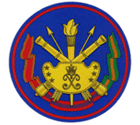
Chief of the Academy: Major-General Fedorov Victor Anantolyevich.
The schools of sciences of the Academy and its outstanding pupils made a huge contribution to the development and maintenance of the combat capabilities of the Armed Forces, to the updating of the weapons and military equipment, to the creation and development of the strategic nuclear forces, to the exploration of the outer space, the development of domestic education, culture, science and technology. ...
At present 556 PhDs work in the Academy, including 13 winners of the State Prize and other awards of the Russian Federation, 31 Honored masters of sciences and engineering of the Russian Federation, 64 Honored workers of higher and vocational education.
Today the Academy is a command-engineering higher education institution with polytechnic specialization as well as a major research center in the field of military science and technology. It realizes professional educational programs of higher professional education to train officers in a wide range of high-tech military-technical specializations, not only for the Strategic Missile Forces, but also for other services and branches of the Armed Forces, for almost all power structures.
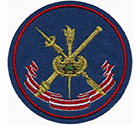
Chief of the Academy: Major-General Ryzhonkov Vyacheslav Nikolayevich.
The Military Academy of ASD trains students and cadets both for the air defense and ballistic missile defense systems which form the basis of ASD of the state. ...
The Academy of ASD has the educational research recourses (more than 50 highly qualified scientists - doctors and professors on the problems of ASD).
The Academy has 10 unique schools of sciences in the areas of ASD theory and the necessary dissertation councils for training both scientists and teachers with practice in ASD.
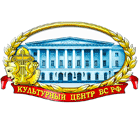
Chairman of the Military Research Society (MRS): Colonel-General Hyupenen Anatoly Ivanovich.
Academic Secretary: Major-General Karmanov Alexander Ivanovich.
There are more than 250 scientists, including 60 doctors of science and 180 candidates of science among the members of MRS. There is a separate section on ASD. ...
MRS of the Cultural center of the Armed Forces of the Russian Federation is a voluntary creative organization of generals, admirals and officers in reserve or retired with the interest in military and scientific work for the RF Ministry of Defense willing to take an active part in its activities.
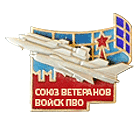
Chairman of the Presidium: Colonel-General Hyupenen Anatoly Ivanovich.
The Presidium of the Council of the Union of Air Defense Forces Veterans consists of 23 people. ...
The Presidium includes seven commissions:
- organizational and planning
- communication with veterans' organizations and the media
- coordination with government authorities
- social and legal assistance
- military-patriotic work
- military historical work
- financial and economic activities.
The Council of the Union of Air Defense Forces Veterans includes 42 regional offices throughout the Russian Federation. The biggest organizations are located in the cities of Khabarovsk, Novosibirsk, Yekaterinburg, Samara, Kazan, Rostov, Kirov, Petrozavodsk, St. Petersburg, Novorossiysk, and Smolensk. The total number of members is about 20,300 people.
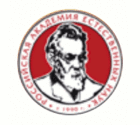
President of the Russian Academy of Natural Sciences: Kuznetsov Oleg Leonidovich.
The Russian Academy of Natural Sciences (RANS) is an all-Russian public creative scientific organization that unites scientists of all branches – natural scientists, creators of high technology and humanists who are inspired by the shared desire to promote self-expression of a creative personality, the development of education, the expansion of basic and applied research, the formation of the civil society in Russia.
The Russian Academy of Natural Sciences operates on the basis of the Organization Charter and in the frame of the legislation of the Russian Federation. The Academy is a legal entity and in due course conducts the scientific, economic and foreign economic activities. The Academy consists of the sections, regional and thematic departments, research centers, associations and small institutions. The Academy was accredited to the United Nations on the 17th of January 1995, and in July 2002, RANS was awarded the NGO status at the UN - NGO (Nongovernmental organization) in Special Consultative Status with the Economic and Social Council of the United Nations.

President of the Academy of Engineering Sciences named after A.M. Prokhorov: Gulyaev Yuri Vasilevich.
The Academy of Engineering Sciences named after A.M. Prokhorov (AES) was created at the initiative of the leading Russian scientists and experts in April 1991. Among the founders AES there were the Russian Academy of Sciences, the Ministry of Industry, Science and Technology, the Federal Agency for Government Communications and Information under the President of Russian Federation, the RF Ministry of Defense, the Russian Aviation and Space Agency, the Russian Agency for Control Systems and other leading fuel and energy, electrical engineering, optoelectronic, aerospace companies and associations, including SPA "Energia", Experimental Design Bureau named after Yakovlev, Design Bureau of semiconductor engineering, SPA "Astrophysics", JSC "Kamov", JSC "Izhmash", JSC "Aviapribor", JSC "Tulmashzavod" etc.
At present, the Academy brings together more than 900 scientists from various fields, most of whom are directly related to production.
AES operates almost over the whole territory of Russia from Kaliningrad to Vladivostok and includes 10 interregional departments, more than 50 regional departments in major constituent entities of the Russian Federation, 17 scientific departments.
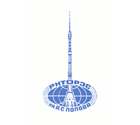
President of the Russian Scientific and Technical Society of Radio Engineering,
Electronics and Communication (STSREEC) named after A.S. Popov: Yuri Gulyaev.
Russian STSREEC named after A.S. Popov is a successor to the traditions of the Russian society of the radio engineers (RORE), established in 1918, and the legal successor of All-Union Scientific and Technical Society of Radio Engineering and Telecommunication named after A.S. Popov (ASTSRET named after A.S. Popov), established in 1945.
The main objectives of the Society is to integrate efforts and to guide the creative activity of Russian scientists and engineers in order to develop domestic radio engineering, electronics and communication on the basis of the latest science and technology achievements, as well as to assist scientists, engineers and technicians in the development of their scientific and technical creative work, continuing education and training, protection of their professional rights and intellectual property.
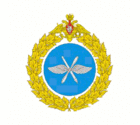
Председатель президиума – генерал-лейтенант авиации Петр Федорович Терехов.
Организация состоит из 21 региональной структуры, включающей в себя 279 ветеранских организаций общей численностью 47 329 человек, из них: участников ВОВ – 5061; ветеранов-интернационалистов – 5460; инвалидов – 7056; Героев Советского Союза – 2; дважды Героев Советского Союза – 19; Героев РФ – 42; научных сотрудников – 15; подшефных школ и учебных заведений – 387, музеев и комнат боевой славы – 413.
В работе региональных, отраслевых и местных ветеранских организаций основное внимание уделяется социальной поддержке ветеранов, военно-патриотическому воспитанию молодежи. Ветераны шефствуют над 9 школами с первоначальной летной подготовкой, помогая им в комплектовании и материально-техническом обеспечении.
Объединенный совет организации поддерживает постоянную связь со всеми региональными коллективами, координирует их деятельность, оказывая посильную помощь и моральную поддержку.
В результате своей деятельности организация приобрела высокий авторитет и поддержку всех ветеранов и пенсионеров Военно-воздушных сил.
Главными задачами ветеранской организации ВВС являются сплочение ветеранского движения по отстаиванию социальных прав ветеранов, проведение военно-патриотической и исторической работы, участие в проведении мероприятий, связанных с празднованием Дня Победы, Дней воинской славы и государственных праздников.
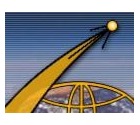
President of the Russian Academy of Cosmonautics named after K.E. Tsiolkovsky (RAC): Barmin Igor Vladimirovich.
The idea of creating a public research organization on cosmonautics was initiated in autumn of 1990 by members of the Organizing Committee of the annual scientific conference named after K.E. Tsiolkovsky - F.P. Kosmolinsky, B.N. Cantemirov, V.P. Senkevich, etc. The Foundation meeting of the Academy of Cosmonautics named after K.E. Tsiolkovsky was held on the 28th of March, 1991 in the Moscow Planetarium. On the 16th of June, 1999, the Academy of Cosmonautics named after K.E. Tsiolkovsky was given the title "Russian".
The RAC goals are:
- to assist in the integrated research of the space problems that answer the current challenges and the prospects in the field of the human and national activity, in system analysis of the condition and prospects of the space science and technology development, in the solution of some basic and applied problems in the field of cosmonautics;
- to carry out scientific propaganda and dissemination of knowledge on Outer Space and space activities and their significance for mankind, on the use of space engineering for perception of the universe and solving practical problems of economics, economy management and national defense, on the settlement of the global environmental problems, conservation and restoration of the habitat of the biological life on Earth;
- to keep and to increase our country's achievements in the research, exploration and use of space.
The scientific resource of RAC numbers 1420 people, including members of the Russian Academy of Sciences - 20, corresponding members of the Russian Academy of Sciences – 17, doctors of science - 552 candidates of science - 712.
